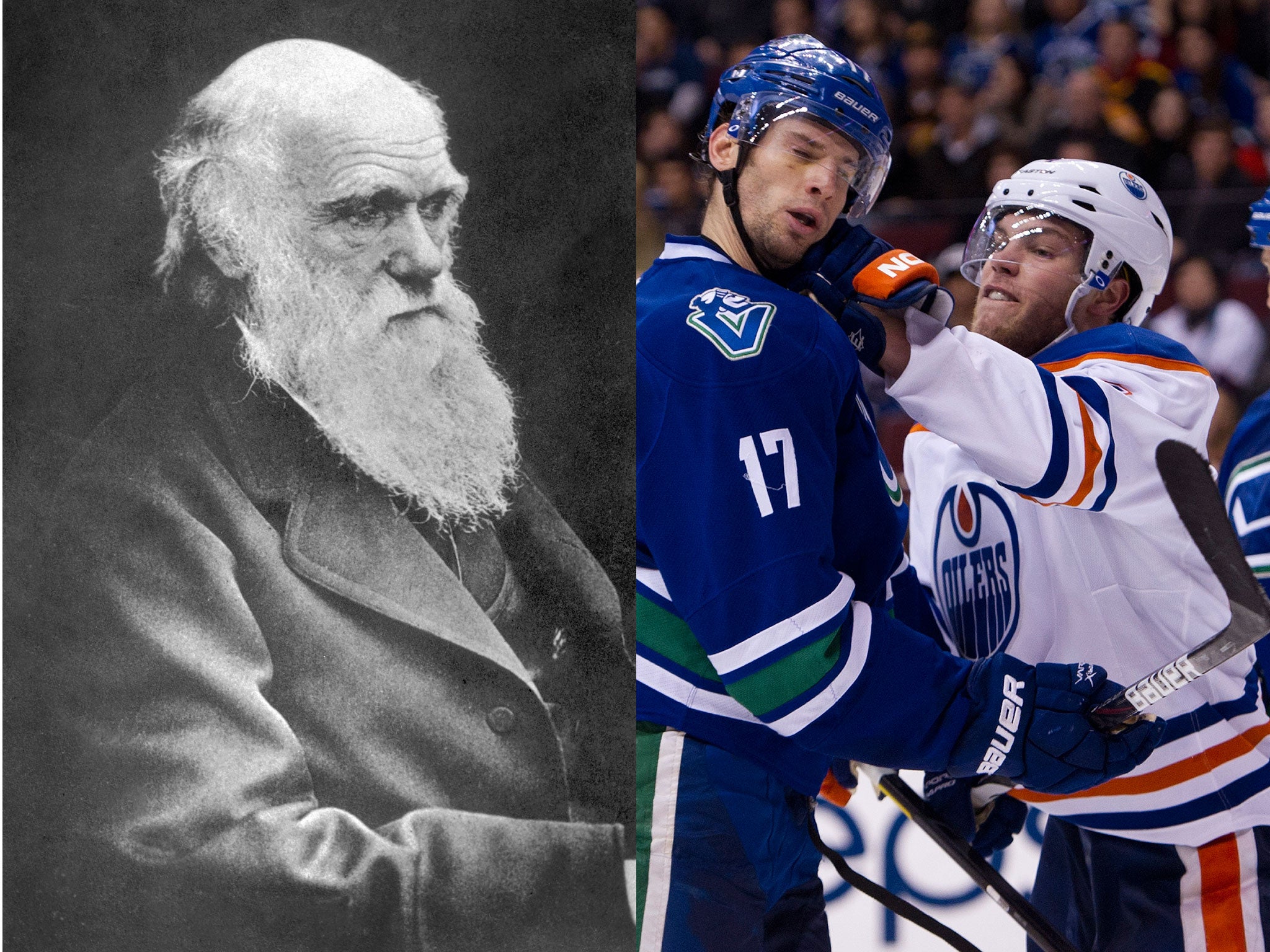Move over, Canada! Was Charles Darwin one of ice-hockey’s first players?
Blow to Canadian cousins as book claims their national sport evolved on frozen ponds of England

Your support helps us to tell the story
From reproductive rights to climate change to Big Tech, The Independent is on the ground when the story is developing. Whether it's investigating the financials of Elon Musk's pro-Trump PAC or producing our latest documentary, 'The A Word', which shines a light on the American women fighting for reproductive rights, we know how important it is to parse out the facts from the messaging.
At such a critical moment in US history, we need reporters on the ground. Your donation allows us to keep sending journalists to speak to both sides of the story.
The Independent is trusted by Americans across the entire political spectrum. And unlike many other quality news outlets, we choose not to lock Americans out of our reporting and analysis with paywalls. We believe quality journalism should be available to everyone, paid for by those who can afford it.
Your support makes all the difference.Britain has given the world a number of its greatest sports, from cricket and rugby to golf and even ping-pong (or whiff whaff, if you believe Boris Johnson).
But it now appears that ice-hockey, Canada’s national game, can be added to the list, with a letter from Charles Darwin suggesting the naturalist was one of the game’s first players.
The news will come as a shock to Canadians, who are taught the game as soon as they can walk, but the authors of a forthcoming book on the subject claim to have proved conclusively that the game was invented in England in the 19th century, with a young Darwin an exponent during his school days.
In a letter dated 1 March, 1853, Darwin writes to his son William, who has gone to Shrewsbury School where the father of evolutionary theory had been a pupil: “My Dear Old Willy… have you got a pretty good pond to skate on? I used to be very fond of playing at Hocky on the ice in skates.”
Darwin attended the school from 1818 to 1825 and researcher Jean-Patrice Martel, a member of the Society for International Hockey Research, told The Independent that this was around the time that a game recognisable as ice hockey first started to be played.
Mr Martel, a French Canadian, and two Swedish colleagues, Carl Giden and Patrick Houda, called their book On The Origins Of Hockey in a deliberately nod to Darwin.
“There’s no doubt about it,” Mr Martel said, arguing that there are so many historical references to ice-hockey in England that “no reasonable person could have a doubt.”
He admitted the idea that ice-hockey originated in England would be shocking to many Canadians.
“We expect a lot of people won’t believe it and some will have much difficulty in believing it,” said Mr Martel, a Montreal Canadiens fan. “It’s something you have been told since you were the youngest age, that you’ve been told by your parents.”
Despite the game’s English origins, Mr Martel stressed that Canadians had assumed ownership because of their passion for the sport.
“We wouldn’t want to say Canada has no claim at all [to the game] – that’s not true,” he said. “Canada took the game, sped it up and made it better. Canada really made the game its own and hockey is truly a Canadian game now.”
The Toronto-based National Post newspaper described the book’s central claim as a “puck-shattering thought” that was “sure to rankle Canadian hockey patriots”. But it added that the sport’s English origins were being made “comprehensively and crushingly clear”.
Shayna Conn, 35, originally from Ottawa but now living in Glasgow, said early precursors of hockey might have been played in England, but insisted the real game was from Canada.
“This sounds like a hoax,” she said. “I cannot see Charles Darwin as an original player of hockey. I don’t believe that England created hockey… Go Canada!”
Join our commenting forum
Join thought-provoking conversations, follow other Independent readers and see their replies
Comments